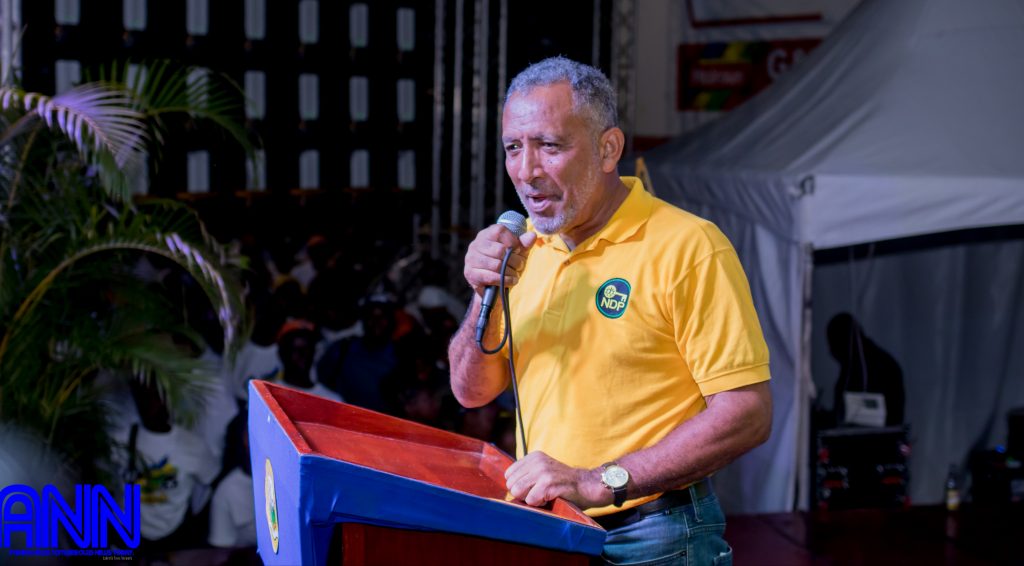Most damning for the government and painful for our people is the widespread incidence of social and economic decay that is seen in the high unemployment rate, especially among our youth, poor health care services and rising crime. It is seen very clearly also in increasing poverty among our people.
That poverty was documented in the poverty assessment survey that the government itself commissioned but buried for over two years because they did not like the stark reality of growing poverty exposed by the survey, which only came to light when it was obtained and published by the NDP.
The survey showed that since 2008, poverty overall increased from 30.2% to 36.1%. Even worse and more telling is the fact that the poorest of the poor—referred to in the survey as the indigent poor increased from approximately 2.9% in 2008 to over 11.3% ten years later. Poverty is growing in our country. The survey said it but you felt it long before that.
The impact of the COVID 19 pandemic remains a matter of grave concern. Our economy already weak and rudderless before the pandemic, has been brought virtually to a halt. Tourism has dried up and our hotel and restaurant operators struggle against growing odds. There are no new capital inflows through investments to spur economic growth and create jobs and there are no credible plans to revive our farming and fishing industries.
These are matters that we addressed honestly and constructively during the election campaign and which we will continue to pursue. They are problems that we intend to address, whether we are in government or not. Our opponents for short term political gain, distorted and misrepresented the policies and programs we presented and lied about our motives and intentions. Through shameful, jingoistic rhetoric and appeal to the basest instinct of our human nature, the usual refuge of populists and autocrats, they sought to mislead our people, while offering nothing constructive and hopeful in return.
Some believed it; but thankfully most did not. And even after all of that, more people voted for the NDP than the ULP. This tells me that there is much work to be done. But more importantly, that there is hope that it can and will be done, though it may now take a little longer. Overshadowing all of this, is the doubtful legitimacy of the present ULP Government and the impact this will have on governance in the country.
As I mentioned earlier, on the basis of our shared values that at its core, democracy is expressed through the will of the people shown by a majority of the votes of the people, the legitimacy of the minority government that the ULP has now become is in doubt.
This minority government has resulted notwithstanding the widespread exploitation of state resources by the ULP to influence voters and the widespread buying of votes in key constituencies. Clearly these circumstances, including the meagre margins of the results at the recent polls and the unfavorable decisions in the final count in North Leeward which gave the seat to the ULP candidate, cast a dark and growing shadow over the legitimacy of the new ULP government.
At Dr. Gonsalves’ swearing in ceremony, our Governor-General expressed her intention to support all and urged Gonsalves as PM to be inclusive in the way he governs. That is welcome advice. If nothing else, it should remind Dr Gonsalves that after taking office, he should not continue with the politics of divide and rule, of victimization based on partisan politics, and with the immoral exclusion of over half of our people from constructive engagement in the processes of governing and from sharing the benefits of our nation’s resources.
Regrettably, from his responses including references to “a cock-eyed notion of democracy” and the blatantly false suggestion that he has always sought “to include the Opposition at all levels”, there is little hope that this advice will be followed. Nevertheless, our circumstances demand hope, in all its aspects. And we will by all proper means at our disposal ensure that the majority voice of the people which the NDP now represent will not be silenced or marginalized. We will be heard and will insist on shaping the direction of our country’s future.
In replying to the Governor General exhortations to be inclusive, Dr. Gonsalves basically confirmed his intention to continue along the path of division and exclusion that he followed over the years. This is a far cry from the stance which he and the ULP adopted in 1998, when his party won the popular vote and the NDP won the majority of the seats.
At that time, they argued that: The ULP acknowledges that St. Vincent and the Grenadines has a first-past-the-post electoral system and that in a narrow legal sense the NDP has the right to be called upon to form the government for the time being. But politics and good governance have always been more than narrow legalisms. A truly functioning democracy demands that the consent of the governed, that is, the consent of real flesh-and-blood voters, be obtained. Fifty-five percent of the voters have stated unequivocally that they do not want to be ruled by the NDP.
At that time, the ULP called for dialogue with the NDP aimed at working out an interim arrangement pending fresh elections, which they proposed should take place within six months. They appealed to the Christian Council, the Chamber of Commerce and other social partners to act as brokers in the negotiation process.
But when Ralph Gonsalves became leader of the ULP in December 1998, he refused any form of co-operation with the NDP government, not even to attend official functions including welcoming a foreign head of state and the ULP vowed to make the country ungovernable. This situation led to the so-called “road block revolution” and ultimately to the shortening of the constitutional term of the NDP government.


